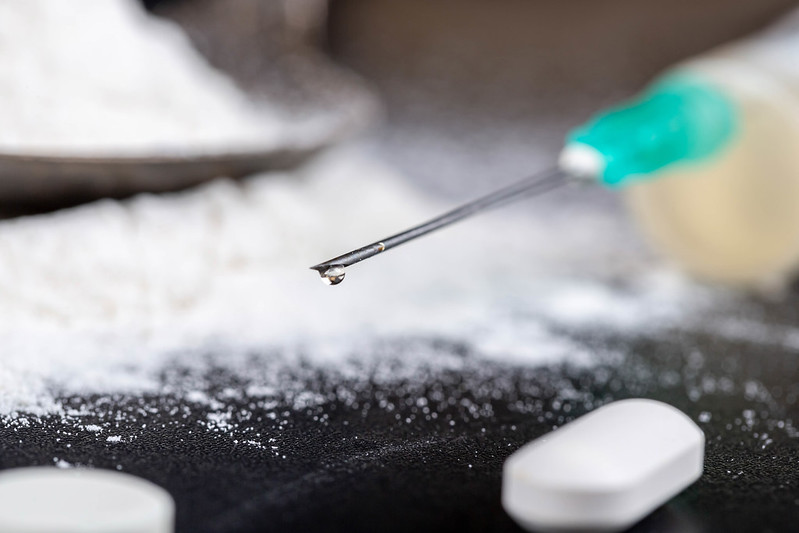At social events, teenagers used drugs and alcohol to calm and release their fear. Teenagers frequently try drugs, firstly because of group pressure but later to seek a high or take peace from their worries. Many teenagers use drugs, but some end up with a substance addiction that lasts into adulthood. Teenage drug use has serious downsides. Heavy dosages of psychoactive substances affect the reward system in the brain. The brain stops creating “feel good” hormones in response to “feel good” circumstances once it becomes used to constant flows of these chemicals.
 Source: Flickr
Source: FlickrAlthough it’s common for youths’ goals and interests to shift as they move from childhood, frequently severe drinking makes it more difficult for people to function in clean society.
Perhaps you were unaware that youth are more likely to develop drug addiction than adults are. Drug addiction is a complex disorder that has numerous effects on the brain. Teenagers are more at risk for drug addiction for several reasons, which are mostly explained by the function of the brain in this process. This remains good despite of the teen’s preferred drug.
Teens will feel more empowered to perceive you as a friend rather than an authority if we have regular, open conversations with them regarding drugs. A “legalisation policy” is one that many parents adopt. If your teen finds themselves in a difficult spot, a legalisation policy will allow them to come to you for help without worrying about the consequences.
You promise not to impose normal repercussions, like a punishment, during these times. Instead you’ll concentrate on getting them out of harm’s way. When the time arrives, you will surely talk about the issue and share how proud you are that your youngster approached you rather than making a poor decision.
Teenagers experience the effects of brain changes much more quickly than adults do. This is due to the brain’s incomplete maturation. Teenage years are a critical period for brain development, especially in areas related to maturity, self-control, and decision-making. Teenage brains are still not fully developed, which helps to explain a variety of teen behaviour, including dangerous and impulsive acts and behaviours. They have no regard for or thorough understanding of the long-term effects since they only want quick enjoyment. Teenagers that try with drugs get that immediate satisfaction and repeatedly seek it out.
Teenagers take unnecessary risks because of the changes occurring in their developing, still immature brains. Many youngsters find it challenging to fight the initial desire to use drugs. The earlier a kid begins using drugs, the greater the likelihood that use may progress to filled addiction early in life and raises the likelihood of addiction in the future.
Teenagers are more likely than adults to develop a drug addiction. Teens experience the devastation of drug addiction sooner than adults do, for a variety of reasons, whether the drug be alcohol, opiates, marijuana, or other substances.
Knowing what’s causing it can help you get the necessary help if your kid develops a drug addiction as well as provide you a better understanding of how teens are more prone to addiction.
The first step in helping your child deal with his drug addiction is realizing that the teenage brain is generally more receptive to drug addiction and less able to resist the desire to use drugs. It is essential to seek assistance for your kid at a drug treatment center that deals to teenagers. While imposing fair punishments is a wonderful place to start, denying your child access to their phone and forbidding them from hanging out with their friends—whom you feel are to blame for their drug addiction—won’t make them stop doing drugs.
A thorough treatment programme that addresses the full person in addition to the addiction is what your teenager needs. Your support of and involvement in your teen’s treatment, along with your own, is essential to their recovery.
Masfa Bilal
